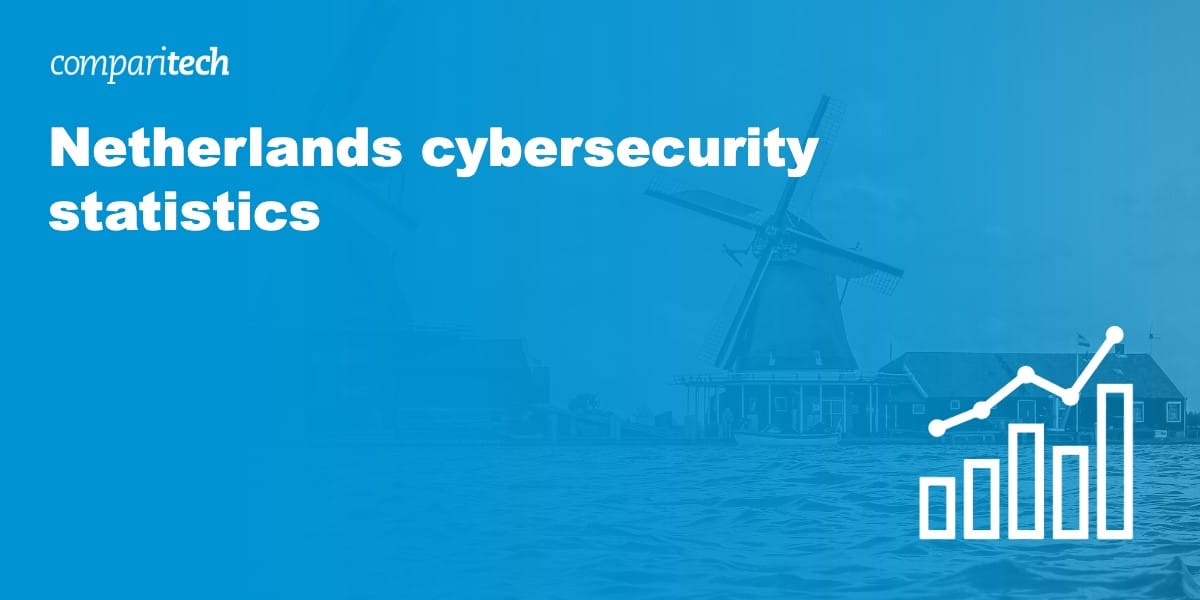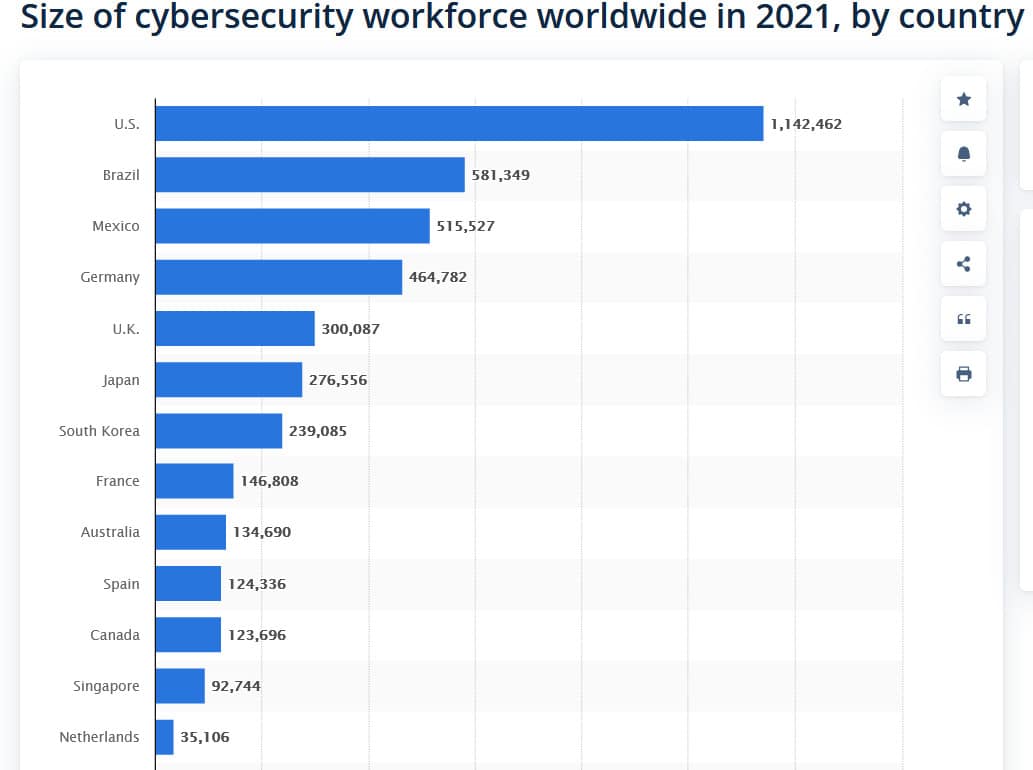The Netherlands is a major hub for technological innovation, but it’s increasingly vulnerable to cyber threats. Understanding the state of cybersecurity in the Netherlands is critical for maintaining a secure digital environment and helping businesses protect their digital assets. In this blog, we’ll explore some key statistics that illustrate the current landscape of cybersecurity in the Netherlands.
We’ll look at the prevalence of cyberattacks, how common data breaches are, and which industries have been most affected by these security issues. With this information, you can make informed decisions about how to best protect your organization from potential threats. Read on to learn more about Dutch cybersecurity statistics.
1. Cyberattacks claimed over 2 million victims in 2021
17% of the Netherlands population aged 17 or older were affected by some form of cybercrime in 2021. Under half of the victims reported the incident, while just 20% filed a police report. (Source: CBS)
2. An average Netherlands data breach costs over 2,000 Euros
In 2019, the average cost of a data breach in the Netherlands was €2,654 per lost or stolen record – higher than the global average of €154 (Source: IBM).
3. Young adults are most at risk of identity theft
Dutch citizens aged 18 to 25 were reported as the most at-risk group to suffer attacks such as phishing, identity theft, and online fraud in 2019. (Source: NL Times)
4. Mobile devices account for more than half of internet usage in the Netherlands
According to Akamai’s State of the Internet report, 52 percent of internet traffic in the Netherlands comes from mobile devices (Source: Akamai).
5. Hacking was the most common cybercrime in 2019
Of every 100 Dutch victims, around 22 of them experienced some sort of cybercrime offense. Of these attacks, hacking was the most common type of crime. (Source: Statista).
6. 4.6% of victims experienced online shopping fraud
In 2019, online shopping fraud accounted for 4.6% of reported cybercrime. This was slightly above the 4.2% linked to cyberbullying. (Source: CBS)
7. Over 35,000 cybersecurity professionals were working in 2019
The Netherlands had 35,106 operational cybersecurity experts working in the country in 2021. This was behind Singapore, which employed over 92,000 cybersecurity staff. (Source: Statista).
What were some of the biggest cyber attacks in The Netherlands?
Here are some of the biggest cyber attacks in The Netherlands:
1. COVID Track and Trace leak
In 2021, a massive data leak was reported by Dutch Health Authorities, affecting the patient data of thousands of people. The stolen data was put up for sale online, but it’s unclear whether a purchase was made. (Source: Reuters)
2. 7.3 million records stolen from a car database
In March 2021, an established car maintenance service provider RDC was hacked, having data from millions of Dutch vehicle owners stolen. The data was identified on a cybercrime forum, with the records being put on sale. (Source: The Record)
3. Data of 4,000 guests leaked on Booking.com
Booking.com received a hefty fine of €475,000 in March 2021 for missing a three-day deadline to communicate details of a breach to the regulator. The company took an entire month to identify the breach. (Source: Cybersecurity-Insiders)
4. Dutch police systems breached by Russians
Russian hackers attacked a central Dutch police database in June 2021, though the intrusion dates back to 2017. Dutch investigators kept the breach quiet until the Dutch Intelligence Agency uncovered the findings. At the time of writing, there’s no indication of what the hackers did while inside the systems. (Source: Malwarebytes)
5. A ransomware attack hit a Dutch university
The University of Maastricht experienced a ransomware attack in December 2019 that prevented staff and students from accessing lecture notes, email, and research. The hacking group requested 30 Bitcoins, worth €197,000 at the time, at which point the university paid the criminals. (Source: Port Swigger)
How to stay safe online in The Netherlands
Here’s how to stay safe online in The Netherlands:
- Use strong passwords and two-factor authentication: Creating secure, unique passwords for all of your accounts is essential in avoiding cyber threats. Additionally, consider using two-factor authentication when available to add an extra layer of security to your accounts.
- Be aware of scams and phishing attempts: Be vigilant against suspicious emails or messages, especially those asking you to provide personal information or download attachments. If something feels shady, it probably is – don’t take the risk.
- Regularly update software and applications on your devices: Ensure that all the applications and programs on your device are up to date with the latest security patches and updates from trusted developers. Doing this will reduce any vulnerabilities hackers may exploit.
- Utilize reliable antivirus and anti-malware software: Install reputable and trusted antivirus and anti-malware software to protect your device from any malicious programs or threats. This is especially important when working with sensitive data, as advanced protection provides better security than relying on built-in features only.
- Be mindful of what you share online: Be aware of the information you’re sharing on social media platforms and websites, such as passwords or payment details, which could lead to identity theft if they end up in the wrong hands. It’s also important to make sure that your privacy settings are configured correctly on each platform.
- Connect to secure networks whenever possible: The connection must be secure when connecting to a public Wi-Fi. Make sure any websites you visit are encrypted with HTTPS to avoid interception of your data. Additionally, try using a Virtual Private Network (VPN) to hide your device’s IP address and protect your online activities from prying eyes.
By following these simple steps, you can help ensure your digital safety and avoid becoming the victim of cybercrime in The Netherlands. Furthermore, with the right security measures in place, you can protect yourself from even the most sophisticated threats.


